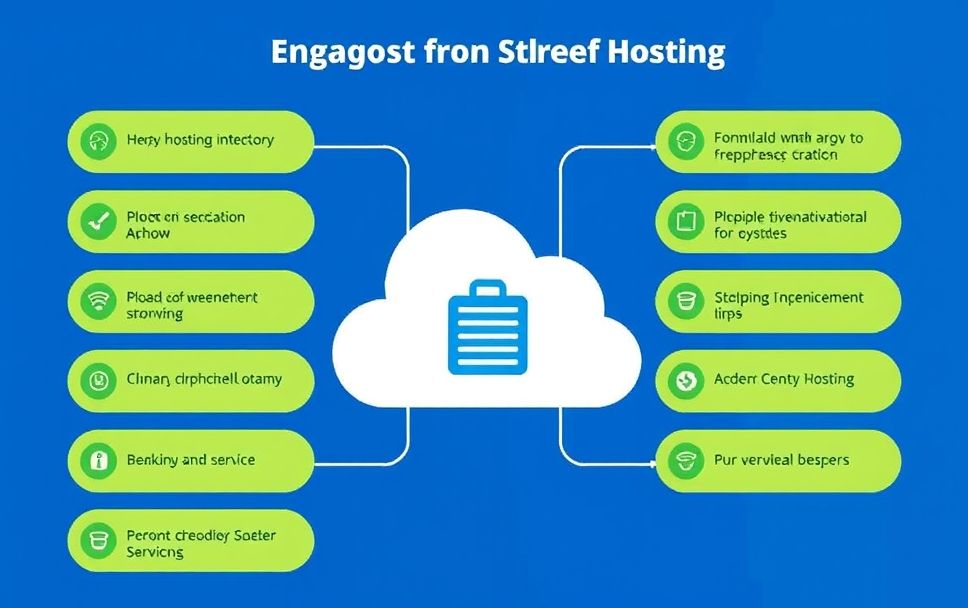Understanding Cloud Hosting Benefits
Cloud hosting is a modern approach to web hosting that uses a network of virtual servers hosted on the internet to manage and store data. Unlike traditional hosting solutions, which rely on a single server, cloud hosting leverages multiple servers, allowing for improved resource allocation and flexibility. This article delves into the benefits of cloud hosting, exploring its significance for web developers, server administrators, and programmers.
Why Cloud Hosting is Essential for Modern Businesses
The digital landscape is evolving, and businesses must adapt to remain competitive. Cloud hosting provides a solution that meets the needs of modern enterprises. Here are some primary advantages:
- Scalability: One of the most significant benefits of cloud hosting is its scalability. As businesses grow, their hosting needs change. Cloud hosting allows users to scale resources up or down based on demand, ensuring optimal performance without overspending.
- Cost-Effectiveness: With cloud hosting, you pay only for what you use. This pay-as-you-go model can lead to significant cost savings, especially for startups and businesses with fluctuating traffic.
- Reliability: Cloud hosting systems are designed with redundancy in mind. If one server fails, others in the network can take over, minimizing downtime and ensuring continuous availability.
- Performance: Cloud hosting offers enhanced performance through load balancing and efficient resource allocation, which can lead to faster website loading times and improved user experience.
Key Features of Cloud Hosting
Understanding the specific features that contribute to the benefits of cloud hosting can help businesses leverage this technology effectively. Below are some essential features:
- Virtualization: Cloud hosting utilizes virtualization technology to create multiple virtual servers on a single physical server, optimizing resource use and enhancing flexibility.
- Automated Backups: Many cloud hosting providers offer automated backup solutions, ensuring data safety and quick recovery in the event of a data loss incident.
- Security: Cloud hosting solutions often include robust security measures, such as firewalls, encryption, and multi-factor authentication to protect user data.
- Global Reach: With data centers located worldwide, cloud hosting enables businesses to deliver content to users from servers closer to their geographical location, improving load times and performance.
Practical Applications of Cloud Hosting
Cloud hosting can be effectively utilized in various scenarios. Here are a few practical applications:
- E-commerce Platforms: Online stores can benefit from cloud hosting due to its scalability, allowing them to handle traffic spikes during sales or promotions without compromising performance.
- Web Development: Developers can use cloud hosting environments to develop, test, and deploy applications quickly, taking advantage of the flexibility and scalability that cloud solutions offer.
- Big Data Processing: Businesses that deal with large data sets can utilize cloud hosting for storage and processing, leveraging cloud resources to manage big data analytics efficiently.
- Content Management Systems (CMS): Many CMS platforms, like WordPress, thrive in cloud hosting environments due to the ability to scale resources and manage high traffic loads seamlessly.
How to Implement Cloud Hosting in Your Business
Transitioning to cloud hosting can be straightforward. Here are steps to consider:
- Assess Your Needs: Determine your business requirements, such as expected traffic, data storage needs, and budget.
- Choose a Provider: Research and select a cloud hosting provider that aligns with your needs, considering factors like uptime guarantees, support, and pricing models.
- Migrate Your Data: Plan and execute the migration of your existing data and applications to the cloud, ensuring minimal downtime.
- Monitor and Optimize: After migration, continuously monitor performance and resource usage, optimizing configurations as necessary to enhance efficiency.
Related Concepts in Cloud Hosting
Understanding related concepts can provide a broader context around cloud hosting benefits. Here are some terms to explore:
- Virtual Private Server (VPS): A VPS provides a dedicated portion of a physical server, offering more control and resources than shared hosting but less than cloud hosting.
- Hybrid Cloud: This model combines private and public clouds, allowing businesses to leverage both environments for optimal flexibility and control.
- Software as a Service (SaaS): SaaS applications are hosted on cloud servers and accessed via the internet, eliminating the need for local installation and maintenance.
- Infrastructure as a Service (IaaS): IaaS provides virtualized computing resources over the internet, enabling businesses to rent IT infrastructure instead of purchasing it outright.
Conclusion
Cloud hosting offers a multitude of benefits that can significantly enhance the performance, reliability, and scalability of web applications. For developers, administrators, and businesses alike, understanding the advantages of cloud hosting is crucial for making informed decisions about their web infrastructure. By leveraging cloud hosting, organizations can not only reduce costs but also improve their operational efficiency and user satisfaction.
As you consider the transition to cloud hosting, reflect on how these advantages can be applied to your specific business needs. Are you ready to embrace the cloud?









